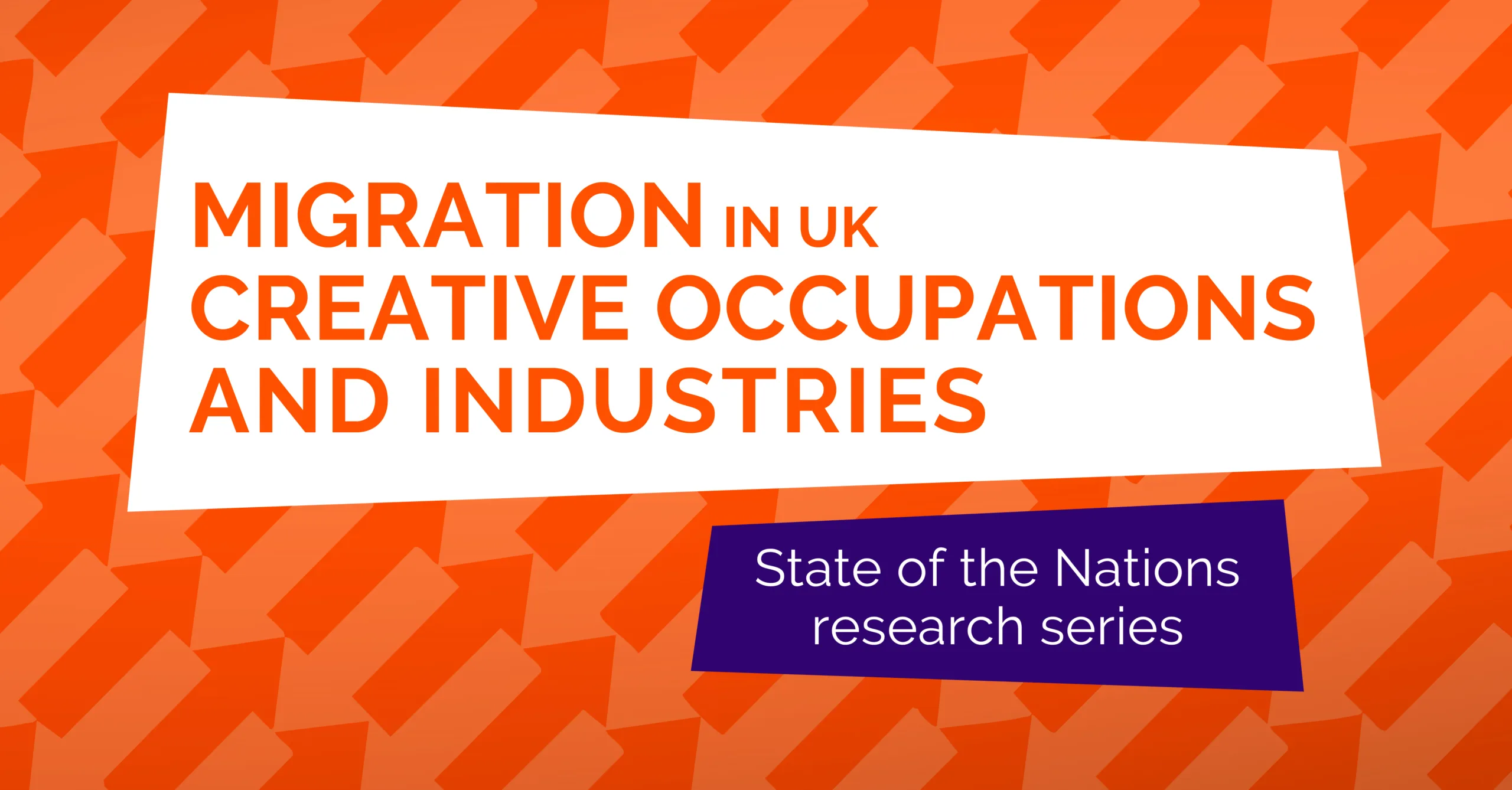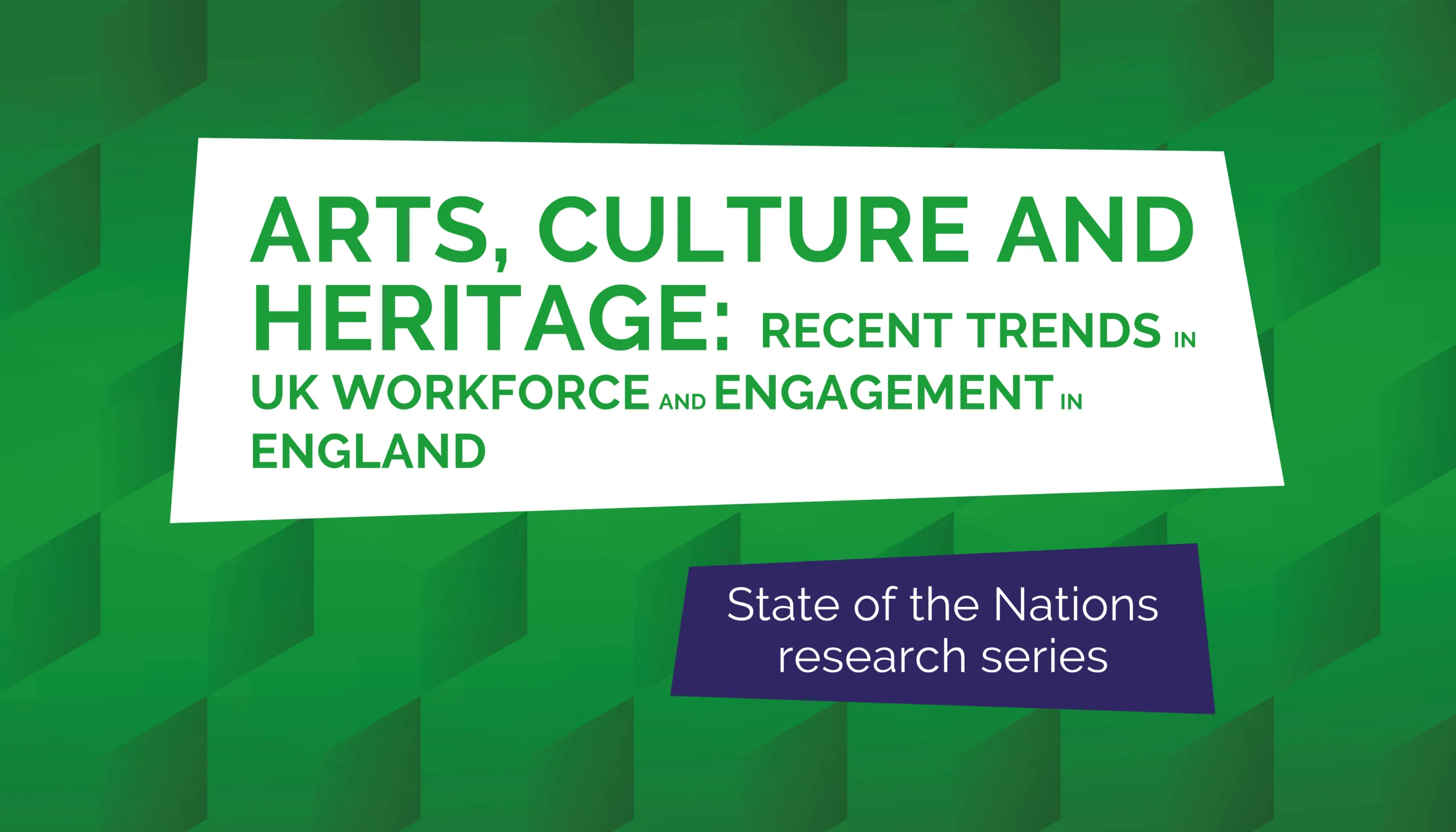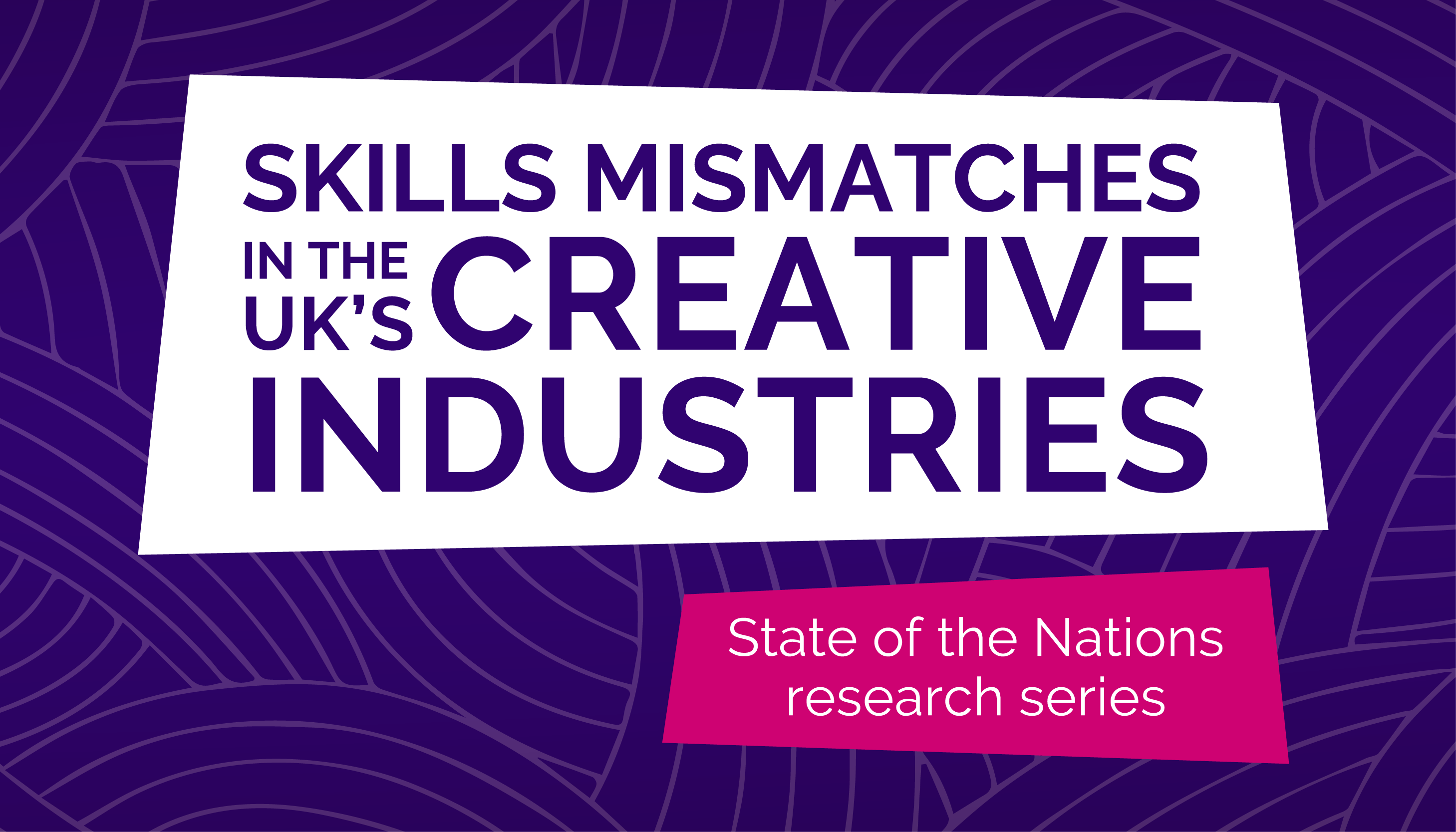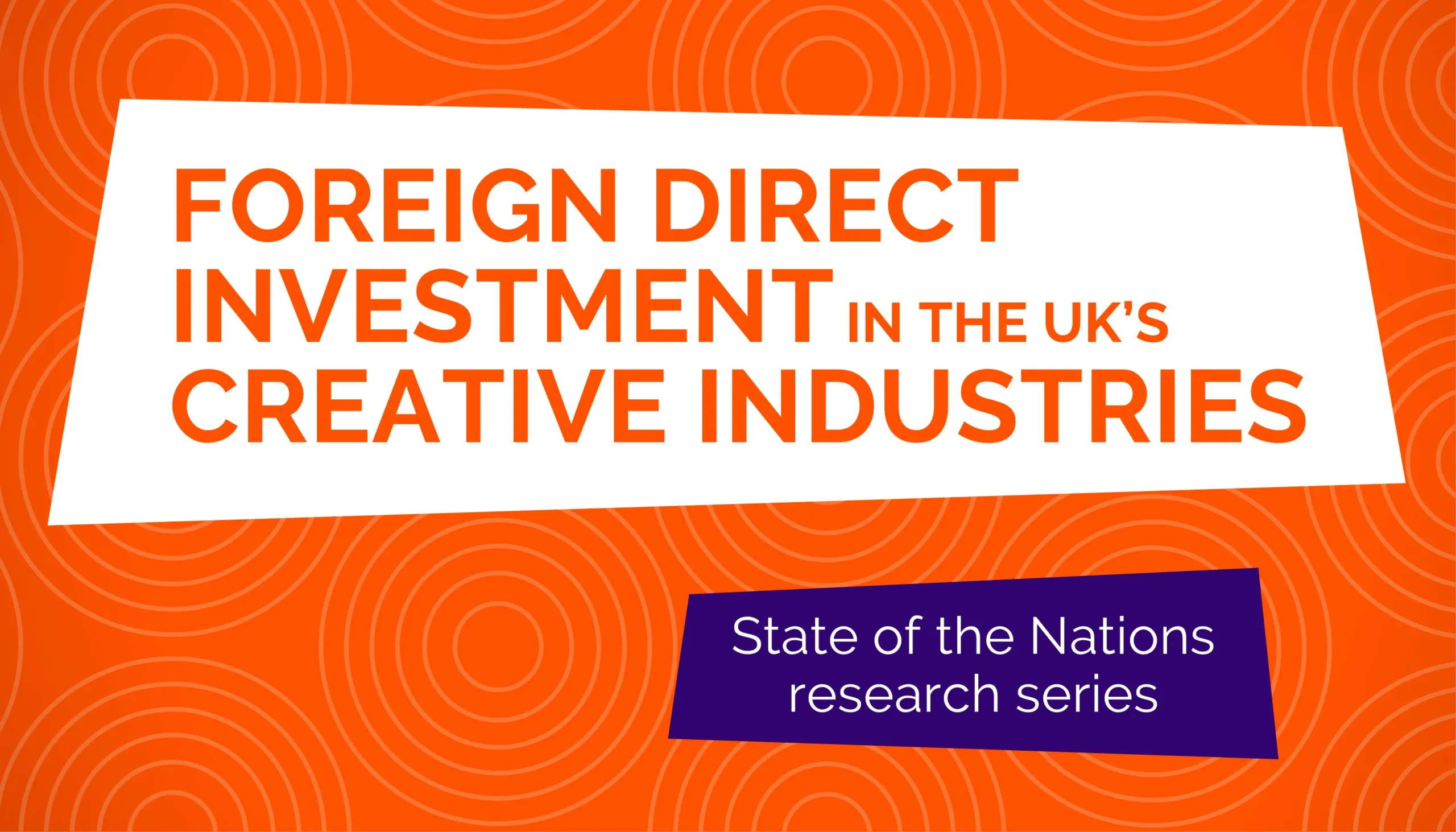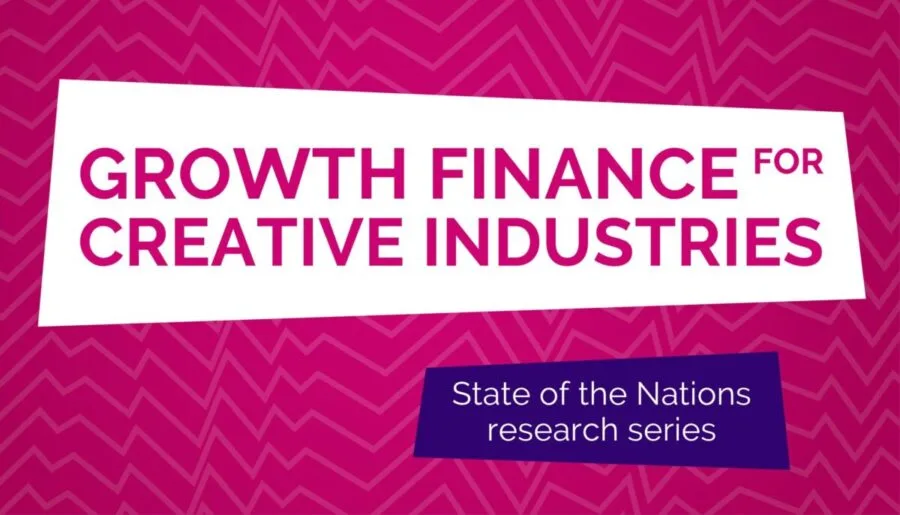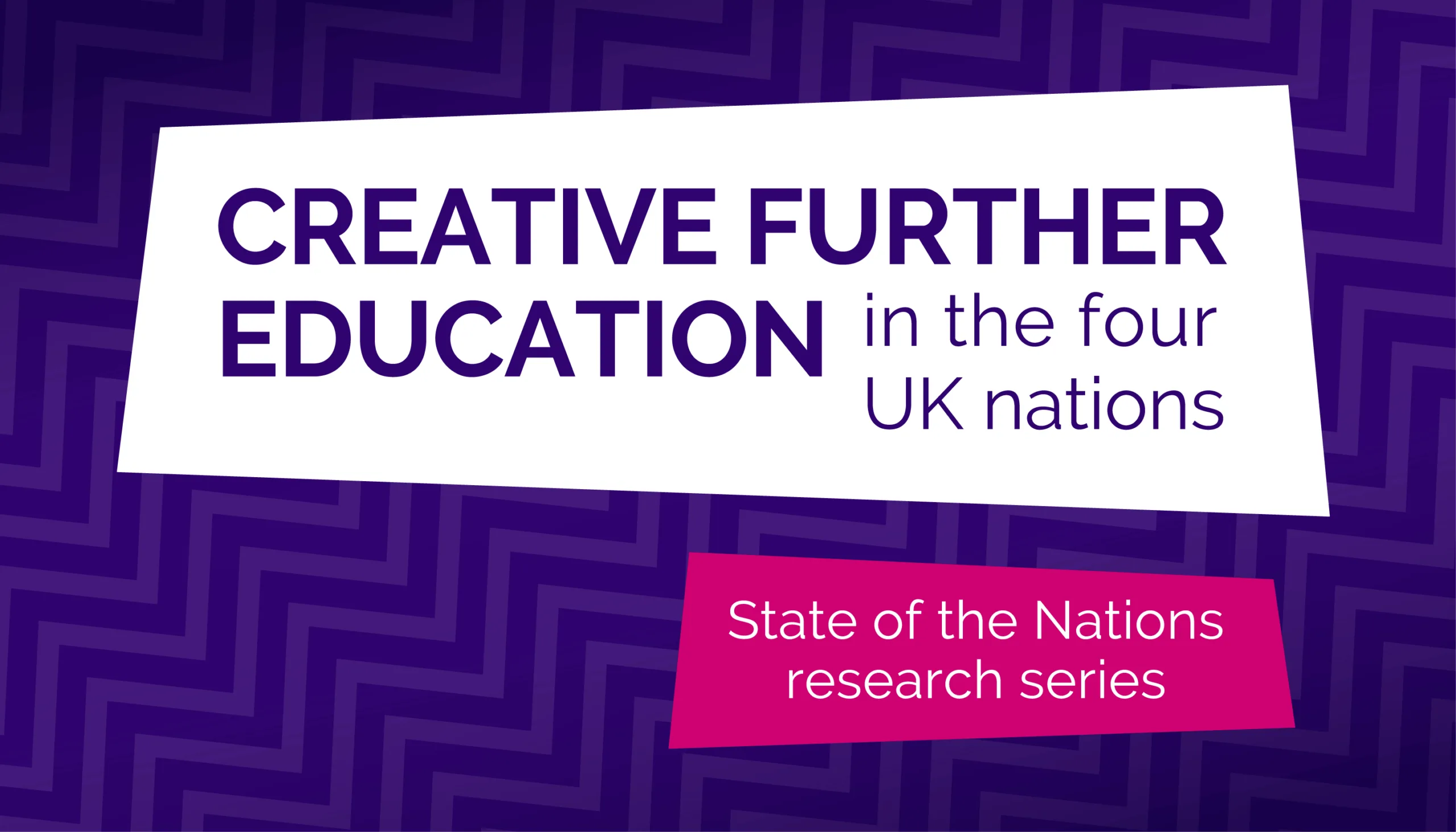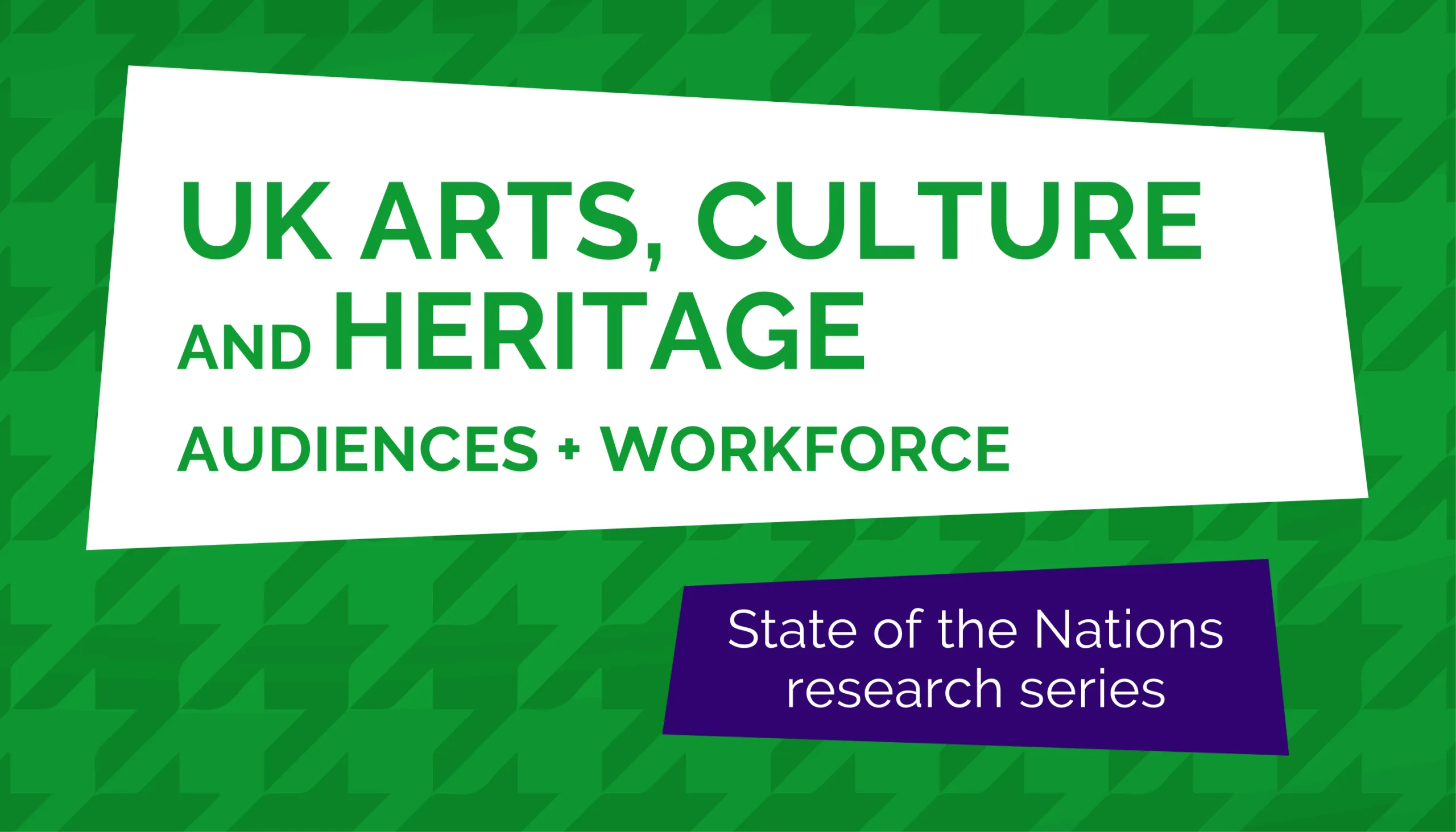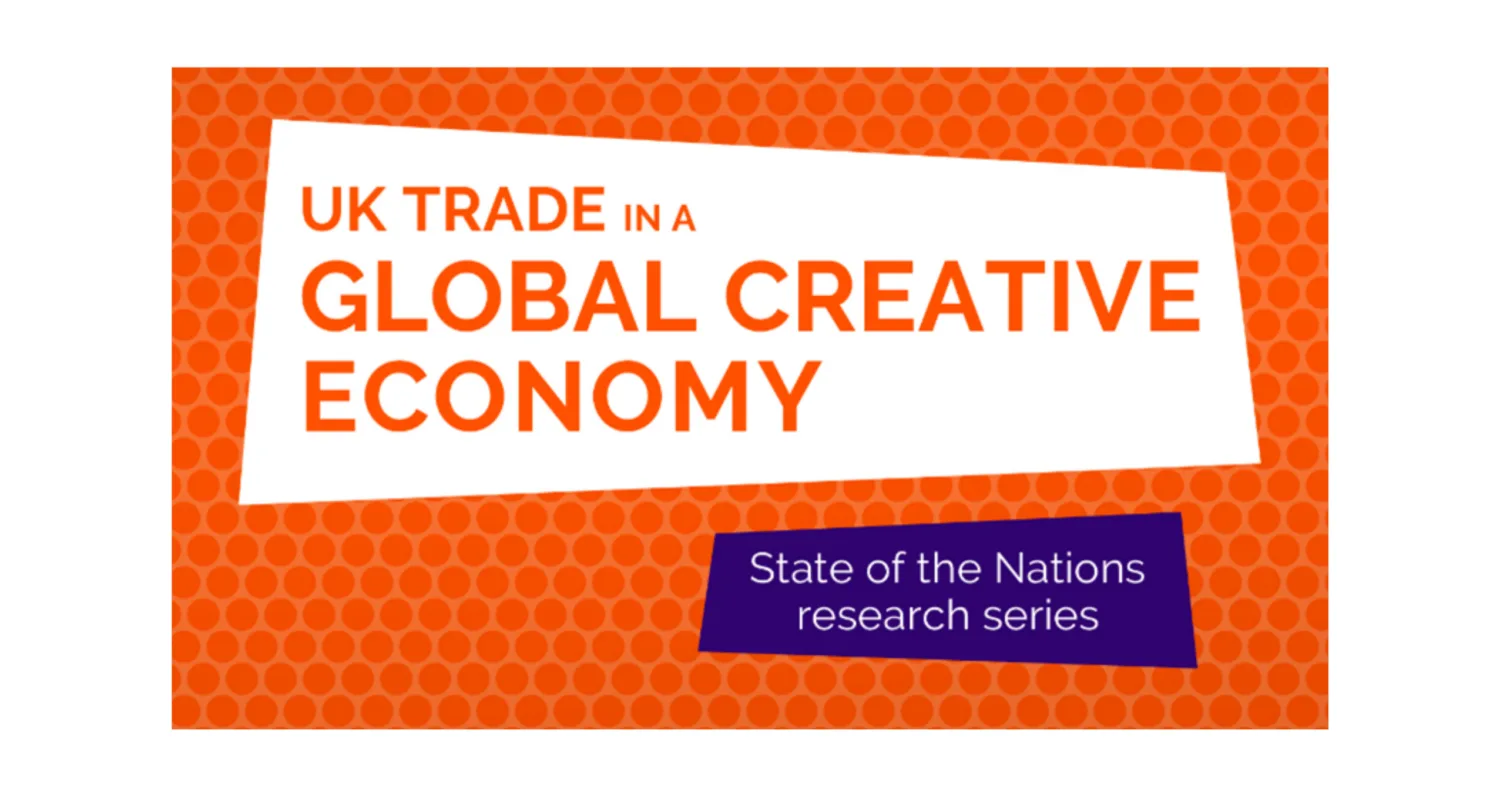Press release: New research involving over 7,000 secondary school teachers finds creative subject teachers lead the way in preparing students for employment, and that a creative education supports well-being
Research published today, which includes a new survey of over 7,000 secondary school teachers, finds that creative subject teachers (for example art, design and technology) are the most likely to provide ‘live’ industry experience for their pupils. The report published by the Creative Industries Policy and Evidence Centre (PEC) shows the value of a creative education for all children. Despite the challenges faced during the pandemic, there has been ongoing innovation in creative education, with teachers demonstrating resilience and creativity in redeploying resources and adopting digital technologies to support learning in schools.
Creative subject teachers were found to be more likely than other teachers to support industry awareness across all eight measures including; ‘providing employer encounters and inspiration schemes’, ‘industry focused projects, competitions and prizes’ and ‘industry career talks in schools’.
The report ‘Enhancing Creative Education‘ with research from the Institute for Employment Studies, finds that backed by the right resources and with committed leadership and training, schools could do even more to equip young people with the appropriate skills for a rapidly changing work environment.
In addition the report finds that studying a creative subject supports positive mental health. One project highlighted found that 93% of 16-18 year olds felt a creative education – which encourages self-expression, collaboration and empathy – had impacted positively on their well-being. With a mental health epidemic seen amongst young people, exacerbated by the pandemic, this is a critical finding.
Lesley Giles, PEC lead on Skills, Jobs and Education said:
“This new research provides further confirmation of the importance of a creative education in schools as well as other parts of the education pathway. This is vital given the sector is such a UK success story, contributing £115.9 billion to the UK. A pipeline of industry-informed talent, with creative and transferable skills, as well as technical skills, is crucial not only to ensuring the creative sector continues to innovate and grow in the future, but will also enable the wider economy to flourish. We must work with the Government as it continues to progress education reforms to nurture the future conditions for creative education to thrive – sound governance, highly capable teachers, and sustained funding to enhance local creative partnerships, especially with employers.”
Joy Williams, Senior Research Fellow, Institute for Employment Studies said:
“It is sustained commitment and investment that makes a difference. The research published today shows that 99% of creative subject teachers felt teaching was disrupted during the pandemic (4% higher than all teachers) due to the in-person facilities often needed. This setback means the commitment to art and design education is even more vital.”
The report provides in-depth case studies of successful industry engagement. Marden High is a secondary school in North Tyneside with a thriving arts department, it has partnered with TICE (This is Creative Enterprise) for nine years. TICE provides industry projects and speakers across a range of creative industry subjects including fashion, graphic design and the music industry. The programme aims to raise awareness of the opportunities in commercial creative, design and digital industries. Schools need to fund the projects themselves and getting sign-off from senior leadership – in a financially constrained environment – is hard.
Tom Prytherch, Art Teacher and Head of Year, Marden High School said:
‘The opportunity for young creative students to work closely with industry professionals is huge. It has proven to spark excitement within their own work, but also provides insight to the workings of each creative sector. They have discovered specific areas that they like and dislike and form an understanding of the process. This has allowed students to develop their own pathways and make key links with professionals, which in turn have opened doors for further experiences, training and employment.’
Jennifer Barrett, Founder and Managing Director, TICE said:
“Connections with creative industry professionals allows students to focus on what they want to do in life, steers those unanswered questions about the creative industries and broadens their experience of prospective career fields. It helps young people focus on their futures, builds trust between students and teachers, and shows students the connection between classroom learning and the real world. Being a young person in pursuit of a career in the creative industries is not easy and the magnitude of such a vast industry can be daunting. The prejudice surrounding what the sector consists of continues to deter young people from choosing art or design-based pathways and therefore deepening the divide between understanding what creative careers are and what they are perceived to be. Making those real-world connections can truly engage students, support decisions, plant seeds and help them set goals for their lives.”
The research also emphasises the agility of a creative education, with live-industry briefs providing young people with up-to-date knowledge and skills, because such projects can move far more quickly than the national curriculum in responding to new trends and the evolving skills needed by employers. Live projects also support young people who prefer to learn through practical, real-life scenarios and can ultimately support greater diversity in the creative industries by teachers choosing to work with industry professionals young people see as representative of their own lives in terms of age, ethnicity and socio-economic background.
The report calls for a universal and systematic offer, no matter of a young person’s location in the country, of good quality art, design and technology education.
/ENDS
The report authors are available for interview.
Press contacts
Alice Kent alice.kent@nesta.org.uk 07779029055 and Anna Zabow, 07713 619077 / anna.zabow@nesta.org.uk
Notes to Editors
1. Enhancing Creative Education was written by Joy Williams; Emma Pollard; Joseph Cook; Morwenna Byford of the Institute for Employment Studies.
2. About the Creative Industries Policy and Evidence Centre (PEC)
The Creative Industries Policy and Evidence Centre (PEC) works to support the growth of the UK’s Creative Industries through the production of independent and authoritative evidence and policy advice. Led by Nesta and funded by the Arts and Humanities Research Council as part of the UK Government’s Industrial Strategy, the Centre comprises of a consortium of universities from across the UK (Birmingham; Cardiff; Edinburgh; Glasgow; LSE; Manchester; Newcastle; Sussex; Ulster and Work Advance). The PEC works with a diverse range of industry partners including the Creative Industries Federation. To find out more, visit www.pec.ac.uk and @CreativePEC
3. About the Institute for Employment Studies
IES is a leading independent centre for research and evidence-based consultancy. We provide insights on employment and human resource management topics to help improve policy and practice. https://www.employment-studies…
4. About Work Advance
Work Advance provides independent research, evaluation and advisory services, working collaboratively to secure practical improvements and bring lasting positive change to the world of work: supporting a more competitive and inclusive future for the UK. https://workadvance.co.uk/
5. The Creative Industries Policy and Evidence Centre (PEC) is part of the Creative Industries Clusters Programme, which is funded by the Industrial Strategy Challenge Fund and delivered by the Arts and Humanities Research Council on behalf of UK Research and Innovation.
Related News and Press
Highly skilled, international talent helps fuel UK creative industries growth, finds new report
Embargoed 9am (UK time) Tuesday 10 June 2025 As the dust settles on the UK government’s Immigration …
Increasing inequality in arts and culture revealed by new research
Embargoed 00.01 Wednesday 7 May 2025 A new report from the Creative Industries Policy and Evidence C…
New Government-backed survey will provide unprecedent insight on what drives growth in the creative industries
In further indication of the increasing importance the Government is putting on the creative industr…
UK Government’s growth ambitions threatened by widening creative industries skills gap
Embargoed 00.01 GMT Wednesday 12 February 2025 The rapid growth of the UK’s creative industries has …
Invest at scale in place-based approaches to unleash potential of ‘Foreign Direct Investment’ in UK’s creative industries says new research
Embargoed 00.01 Wednesday 20 November 2024 GMT With the UK Government’s forthcoming industrial strat…
With the right financial support creative industries could fuel the Government’s growth mission and help tackle persistent regional inequality
A new report published today by the AHRC-funded Creative Industries Policy and Evidence Centre (Crea…
Access to Finance: launch of new research project
New research is being undertaken by Creative UK in partnership with the Creative Industries Policy a…
New research points to a looming creative economy skills shortage across the UK
New report shows ‘severe’ decline in creative further education participation Embargoed 17 July 00.0…
Press Release: New research, including – once in a decade data – provides comprehensive overview of audiences and workforce across arts, culture and heritage.
Embargoed 00.01 Wednesday 15 May 2024 (BST) For the first time, census data has been used to provide…
Press Release: UK’s creative industries are an export success story
New report shows creative strength despite Brexit and Covid Embargoed 00.01 Wednesday 20 March 2024,…
Introducing the Creative PEC’s Research Fellows Network
By Professor Hasan Bakhshi, Director Creative PEC and Professor Giorgio Fazio, Director of Research …
‘One Creative North’ plans finalised at summit ahead of Convention of the North
30 organisations meet to set out a bold new vision for the north of England’s creative industries To…

